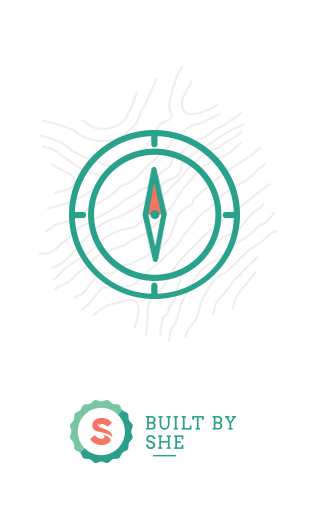
06 Sep Disable the Label
An entrepreneur
A female entrepreneur
A woman entrepreneur
Woman owned
Entrepreneur mom
Mompreneur
Asian entrepreneur
Asian-American entrepreneur
Chinese-American entrepreneur
Acculturated Asian entrepreneur

We must not let our struggles define our identity. But our identity will definitely drive our actions. — unknown
Undoubtedly, the number one identity question I personally get from people once they feel comfortable enough to ask me is:
“Are you hapa (mixed race Asian)?”
“No, purebred.”
“ Asian?”
“Yes.”
“Asian American?”
“Yes.”
“What type?”
“Chinese.”
“Do you speak the language?”
“Nope.”
This is a sequence that has been repeated thousands of times over my lifetime.
So, indeed I am a third/fourth generation, one hundred percent Chinese American woman who doesn’t speak or understand any of the language. I would also say that I am an entrepreneur with Built By She and Imprint Venture Lab as well as a working mom. These labels come with a host of embedded perceptions, I’m sure. I have learned not to take offense. Human nature is curious and it seems that there is an innate need to label people. I’m guilty of it as well, less so with race. But often I will look up someone’s pedigree to see if that might glean some small insight. I am what I am, content with the hand I was dealt, proud of my heritage/background, and of course I would not have it any other way.
I grew up as one of two Asian kids in my entire elementary school in a Denver suburb. It’s no surprise that I grew up as what some might call “whitewashed” due to my environment, but I didn’t really consciously let race be a part of any barriers or drivers in what I was doing. Thankfully, it was never an issue in playground talk or middle school circles. Ironically, in comparison to what we’re seeing in 2017, I didn’t think race was a big topic in life at all. I do recall feeling self conscious when my Chinese speaking grandparents came to visit us, feeling confused when people didn’t love my fried won ton demonstration in my third grade presentation, and pretending that I didn’t know how to use chopsticks in high school because I wanted to go with the flow. Sometimes I would take advantage of the ever-present model minority stereotype to my benefit, and other times I would deliberately try to buck the image of a demure, complacent Asian female. I took a class in college about Chinese women and thought it was interesting, traveled with my grad school to China, and came to work at an Asian multicultural marketing agency mid-career. I remember being asked the question, “How in touch with your inner Asian are you?” Not much, I remember thinking. Since then, I’ve embraced it fully and transformed through a little retro-acculturation, getting back in touch with my roots. I also have made sure to expose my kids to their culture as much as possible so that it can be a rich part of their lives.
So, being a woman entrepreneur is also a tremendous gift that should not be taken for granted or hidden. There is no need to pretend to be one of the guys or camouflage to fit the mold. We’re incredibly lucky to be pursuing business building in this era and be among early movers who are paving the way. To capitalize on having the female mindset, try to embody it, leverage it, and work it to your advantage.

Embody it.
Being a minority, whether that refers to race, gender, or another dimension is a huge asset because you will have a unique point of view on the world. With that lens, you can add color to productive discussions/debates, share cultural understanding and respect, dream up one-of-a-kind solutions to problems, and provoke thought universally to the community/world. So embrace and assert your true nature and you might discover incredible answers.
There are countless successful businesses that were incepted with a female point of view – Sarah Blakely’s Spanx, Michelle Lam’s True & Company, Lynn Perkins’ Urban Sitter, Alli Webb’s Drybar, Brit Morin’s Brit + Co., Katrina Lake’s Stitchfix, Danielle Weisberg and Carly Zakin’s the Skimm, Tracy DiNunzio’s Tradesy, Alexa Von Tobel’s LearnVest, Katia Beauchamp’s Birchbox. Mariam Naficy’s Minted. It’s difficult to imagine having any of these concepts coming to fruition without deep consumer insights and personal relevance, and the value propositions of these companies are genius.
Of course, there are plenty of versatile, non-female-centric startup successes founded by women as well: Deena Varshavskaya is the founder and CEO of Wanelo, Leah Busque’s Task Rabbit, Anne Wojcicki’s 23andme, Gina Bianchini of Ning, Payal Kadakia’s ClassPass, and Julia Hartz’s Eventbrite. Women are building extraordinary companies with skill, prowess, and their unique outlook on the world.
We are so focused on harping about what the venture capital industry does not do for women that we completely forget about the business narrative. We often appeal to gender solidarity when talking to female investors, or to gender tolerance when pitching male VCs, which sounds more like fundraising for charity than investing in a business with potential. The question is, why do we give this conversation a begging tone instead of highlighting the real value of women as inventors, experts, and consumers? – Renata George’s article in The Medium, Strategies to Increase Investment in Women Entrepreneurs

Leverage it.
Beyond devising extraordinary solutions with a female eye, women are making dramatic contributions to global societies as well as controlling more of the economy. The global incomes of women are predicted to reach a staggering US$18 trillion by 2018 (Women: The Next Emerging Market – EY, 2015). Women drive 70-80% of all consumer purchasing, through a combination of their buying power and influence. We innately understand this and can leverage opportunities to appeal to and attract women, both as consumers, employers, and investors. There is forward momentum here and now. We can encourage one another to continue to be change agents and to use our talents and skills to drive advancement forward.
“We are getting a first look at an unfair share of these amazing, oftentimes repeat entrepreneurs, who happen to be female,” said Theresia Gouw, a founder of Aspect and a former partner at Accel. Since more than half of the users of many mobile and social services are women, she added, companies can benefit from having female investors evaluate their products and serve on their boards. That has been true for Mariam Naficy, the founder and chief executive of Minted, a crowdsourced marketplace for stationery and art that has raised $89 million. Early in her company’s life, before there was data to prove that her idea was a good one, female investors were much more likely than men to understand it, she said. – Claire Caine Miller’s article in The New York Times, Female-Run Venture Capital Funds Alter the Status Quo
Work it.
In grad school, I remember a conversation with other women (we were the minority in business school), where I said it was okay for women to flaunt a little of that X factor if it helps move the needle, why not? In retrospect, I feel that it was such a ridiculous observation. How horrified would I be to give that piece of advice to my daughter? Certainly, a more mature version of myself would say that women should never feel that they must exploit that angle to accomplish their goals, regardless of who her peer group or decision makers are.
However, there are ways to legitimately “work it” to our advantage, whether it is about bringing awareness, demonstrating new perspectives, educating stakeholders, or demanding consideration. I recently approached a work situation with a specific ask, playing the woman card, but not in a disingenuous way. Essentially, I said, “you know what, this is an important industry and conversation where it is relevant and advantageous to have women represented.” The result of this simple but daring ask was a very positive offer that was win-win for both parties. What I learned is that it pays to be bold enough to ask and to raise the question/observation about the value of women being present.

Let’s go back to the labels. Being labeled a woman entrepreneur is very much a core differentiator right now. Embody it, leverage it, and work it. We need even more of you!
We all know that being a woman is a tremendous asset. Women embody modern leadership – productive collaboration, superior listening skills, gifted empathy, multitasking superpowers, and much more. We represent half of the population and can create perfect concept solutions for problems affecting part of the population that others may not be thinking about. We certainly don’t need to hide from it. Embrace it and own it. We’ll be here for you!

Sorry, the comment form is closed at this time.